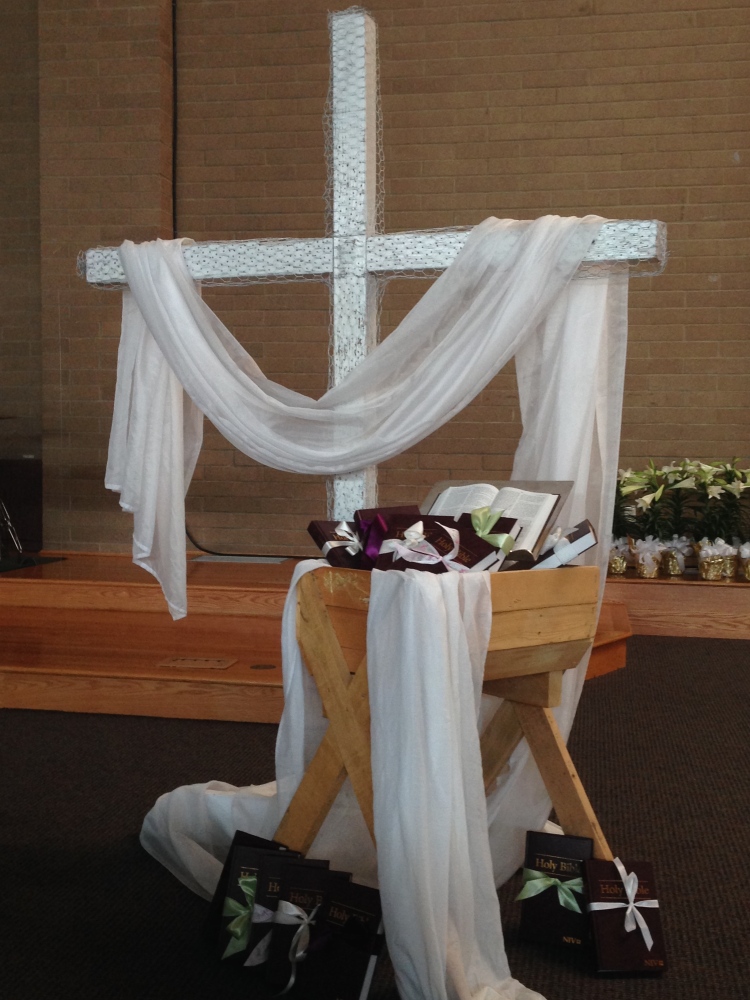On Sunday, January 12, 2014, Mim and I announced to the congregation of Good Shepherd Lutheran Church, Sandy, UT, that we had accepted a call to serve the people of rural Lijiazhai, Henan Province, China, for at least 5 years, under the auspices of China Service Ventures (CSV). My tenure as Senior Pastor of Good Shepherd will end on May 31st. We hope to be in China on July 1st to help conduct CSV’s summer camp programs. (We were at the same place last summer. The blogs of our experience can be found here.)
Why China? I suppose the answer to that question is simply: This is where we feel that the Lord is calling us to serve at this time. We have gifts and talents as part of our personalities, education, and professional training that make us uniquely qualified to serve the current needs of CSV in rural Lijiazhai with the gospel of Jesus Christ, both in word and deed. And, windows of opportunity remain open only so long. We also feel that Good Shepherd is in good hands under the leadership of its current pastors, staff, trustees, elders, and volunteers. May 1, 2014 will mark 21 years of service at Good Shepherd — a coming of age, of sorts. Endings and Beginnings create new opportunities for growth and vision, new ways of serving and new blessings.
CSV’s primary service is the provision of educational scholarships and individualized mentoring and support of underprivileged children in rural areas, who, otherwise, would not be able to attend middle or high schools without the gracious provision of funds from American donors and partnership with Chinese local school and government officials so that students can afford tuition, room and board. This program has been in effect, now, for 10 years and has yielded amazing results. Several of these same children attend a summer English camp sponsored by CSV with Christian counselors from Hong Kong, mainland China, and the United States. Working within the legal requirements of the Chinese government, a partnership has formed between all involved for the benefit of these children.
From the beginning, CSV officials have been upfront about their Christian identity and service motivated by the gospel of Jesus Christ. The founders of CSV are the grandchildren of former Lutheran Missionaries, who served the same surrounding area in the early 20th century, up to World War II and the Cultural Revolution. The work they began so long ago still bears fruit today in several government registered, open Chinese churches.
Our roles are to assist the Chinese staff in the area and to be a source of encouragement, strengthening, and support, with the hopes of one day establishing a Christian Community Center that will serve diverse needs of a growing community, e.g., child daycare and early childhood pre-schools, theological training, nurturing and support of lay leaders in rural churches, and amongst university students.
Mim’s master’s degree in education, Montesori training, K – 12 certification, adjunct college teaching experience; and, 27 years of teaching, outdoor education, and coaching, make her a unique gift and resource to the local area.
My (Jeff’s) doctorate (Ph.D.) in marketing communication, master’s degree in theology, and 26 years of pastoring, and musical talents make me a unique resource to the local church and universities.
Since the beginning of our marriage, we have always looked for ways to serve together in the same field. Though we have been able to do this somewhat in our previous calls, China offers us the opportunity of working more closely together in 29 years of marriage.
Enough for now. We have a house to sell and possessions to sell or give away, reducing our life down into four suitcases and two carry-ons. We also have two children, two sets of parents, extended family, and our family of faith to bless and settle before we leave for China.
– Jeff


